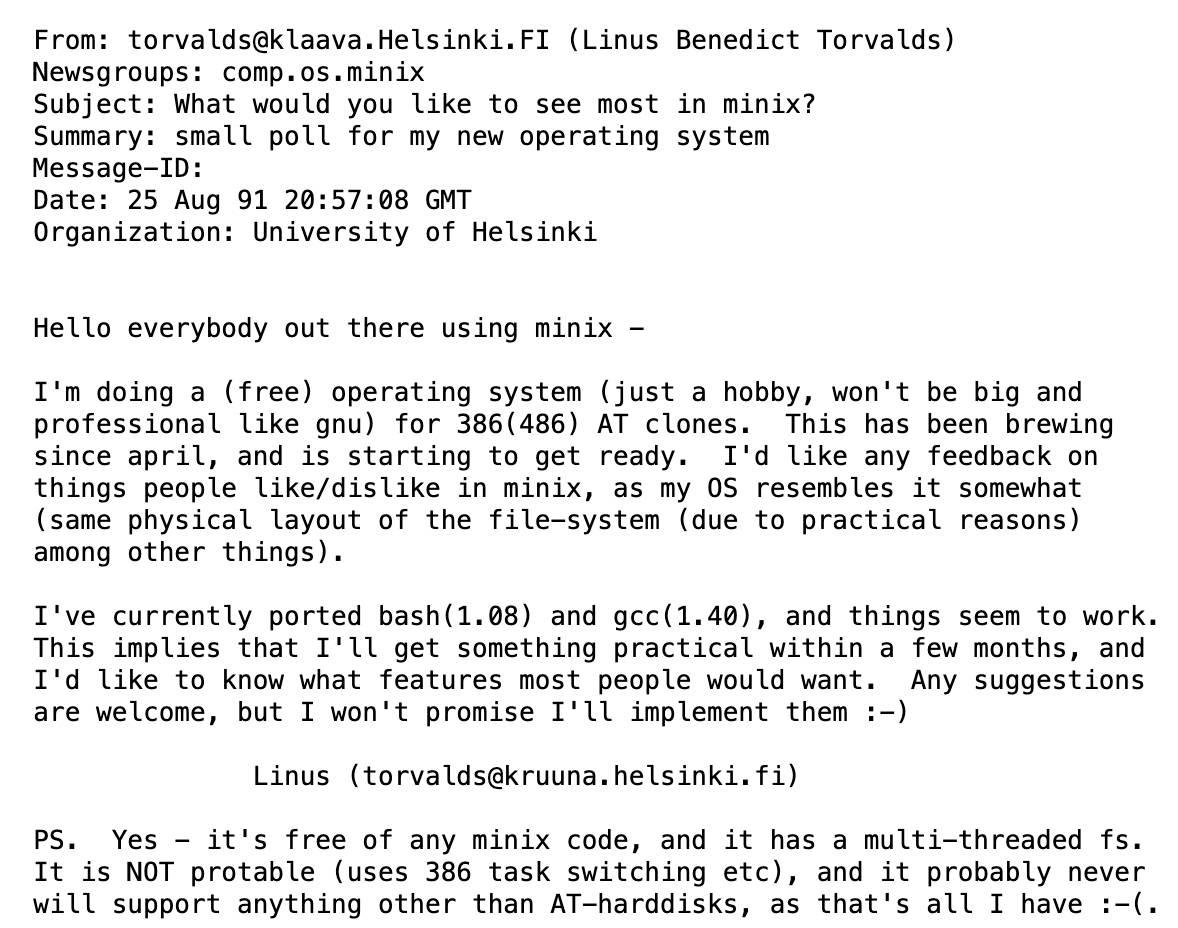this post was submitted on 25 Aug 2024
1380 points (98.7% liked)
Linux
49090 readers
904 users here now
From Wikipedia, the free encyclopedia
Linux is a family of open source Unix-like operating systems based on the Linux kernel, an operating system kernel first released on September 17, 1991 by Linus Torvalds. Linux is typically packaged in a Linux distribution (or distro for short).
Distributions include the Linux kernel and supporting system software and libraries, many of which are provided by the GNU Project. Many Linux distributions use the word "Linux" in their name, but the Free Software Foundation uses the name GNU/Linux to emphasize the importance of GNU software, causing some controversy.
Rules
- Posts must be relevant to operating systems running the Linux kernel. GNU/Linux or otherwise.
- No misinformation
- No NSFW content
- No hate speech, bigotry, etc
Related Communities
Community icon by Alpár-Etele Méder, licensed under CC BY 3.0
founded 5 years ago
MODERATORS
you are viewing a single comment's thread
view the rest of the comments
view the rest of the comments

Aged like fine milk. Looking at you, GNU Hurd.
not really, gnu is still a big professional project
GNU, or as I'd like to call it, GNU+PTerry
GNU Hurd didn't take a good path of development following MACH design. But I still think GNU Hurd is the kernel of the future. Probably the Next generation Hurd. Just because GNU MACH and Hurd present very convoluted designs.
A kernel that performs most of their activities in user space and that it is truly modular looks very promising for the kind of systems we have nowadays and in the future.
Someone has to make the change, or we will stagnate in cumbersome and up featured systems.